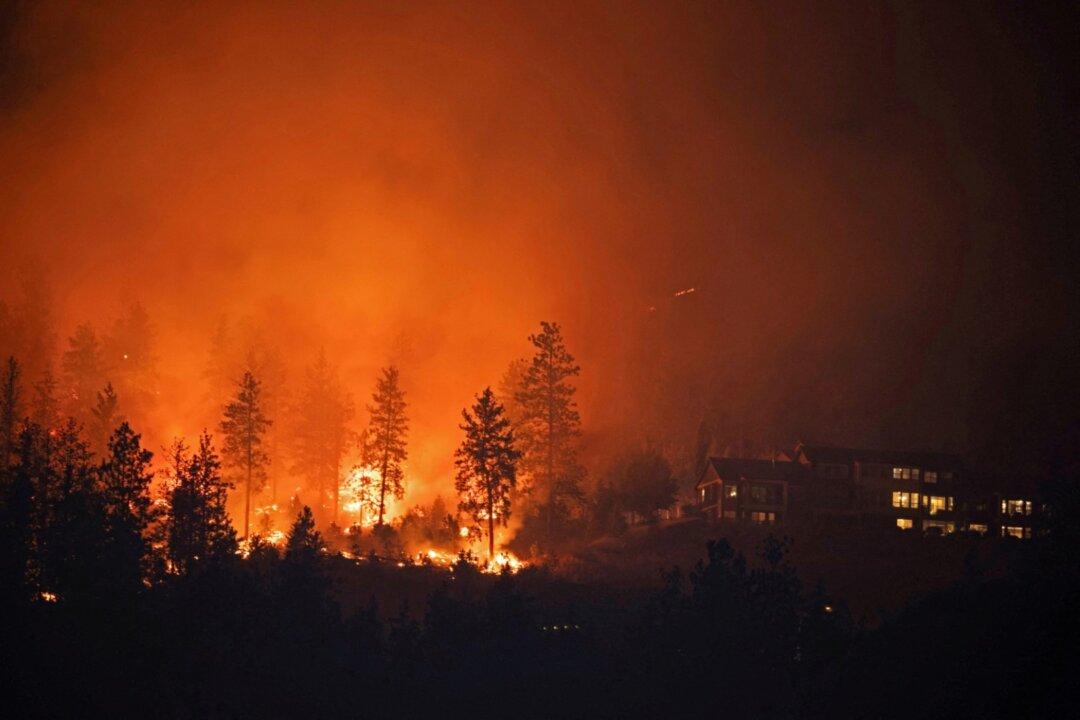
The McDougall Creek wildfire burns next to houses in the Okanagan community of West Kelowna, B.C., on Aug. 19, 2023. Chris Helgren/Reuters
Chris Erickson is one of many who lost their homes in the McDougall Creek fire that hit West Kelowna and area on Aug. 17 and Aug. 18.
An evacuation alert was issued on the evening of Wednesday, Aug. 16. However, initially Mr. Erickson said he and his wife were not too worried.





